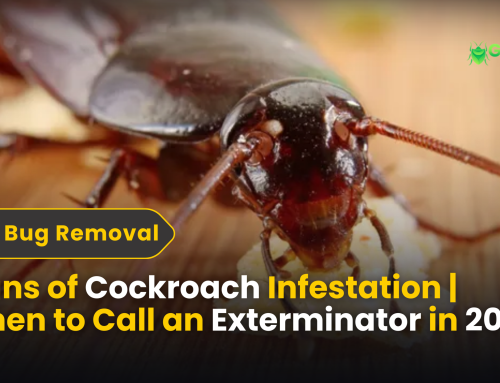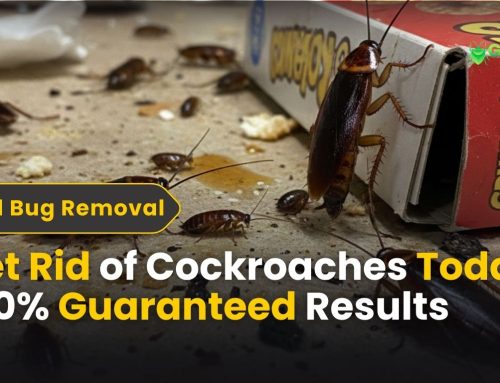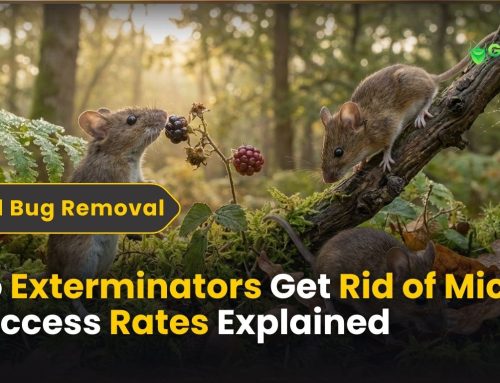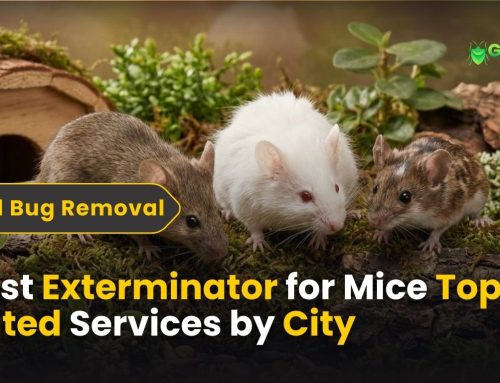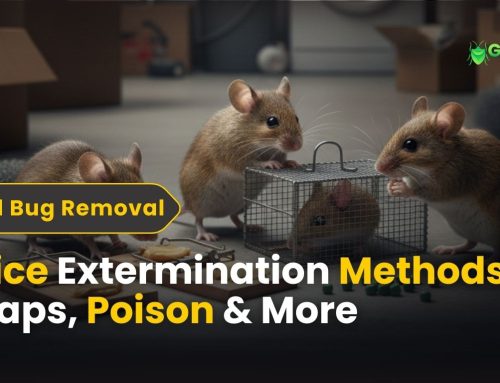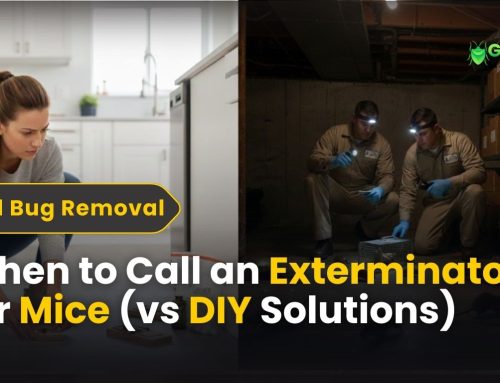Comprehensive Guide to Effective Pest Control Methods for Homes
Well, keeping your home pest free is not just about comfort your home style, its also vital for your familys health and safety. Numerous pests like ansts, cockroaches, rodent, termites and mosquitoes are more than just nuisances they pose significant risks to health and proepety.they can spread disease casue structural damage and creative unsanitary living conditions. However by adopting a strategic pest control methods for homes approch, you can implement effective pest control measures that are eco friendly, long lasting, and tailored to your home’s specific needs. This guide delves deep into pest control strategies that will ensure a pest free environment in your home.
Understanding The Common Household Pests
To check the effectively combat pests, it is crucial to understand their behvior, habitat and more risks.Here is a detailed overview of the most common household pests:
- Ants: These social insect are tiny but highly organized.They infiltrate homes with huge numbers, seeking food, especially sugary or greasy items. Once they establish a trial, they can be challenging to reduce or even eliminate properly.
- Cockroaches: Best known for their resilience, cockroaches thrive in dark, moist and warm environments. They can carry pathogens that cause food posioning and other serious health issues.
- Rodents (rats and mice): These pests are notorious for gnawing on wires, furniture, and food packaging.They also carry disease like hantavirus and leptospirosis.
- Termites: Often referred to as “ Silent destroyer” termites feed on wood and can compromise the structural integrity of your entire home.
- Mosquitoes: Breeding in stagnant water ,mosquitoses are vector for serious disease suh as malria , dengue and the zika virus.
Identifying the pests you’re dealing with is the first step toward selecting the most effective control method.
Top Pest Control Methods for Your Home
Effective control pest control methods for homes combines prevention, natural prevention, natural remedies, chemical treatments, and profesional interventions. Below is an exhaustive breakdown pf strategies to keep your home pest-free.
1. Prevention First: Build a Pest-Resistant Home
The best defense against pests is to prevent them from entering your home in the frst place By addressing entry points, food sources, and hiding spots, you can make your home less attractive to pests.
- Seal Entry Points: Inspect your home thoroughly for cracks, gaps, and cervices sound windows, doors, and utility lines. Use caulky for weatherstripping to steal these openings.Considering installing door sweepes and mesh screens to block entry further.
- Maintain a Clean Environment: Pests are attracted to crumbs,grease, and othe food residur Regularly clean countertops, floors, and sinks to eliminate potential food sources.
- Proper Waste Management: Dispose of garbage promptly and ensure trash bins are tightly sealed. Compost bins should be well covered to prevent attracting pests
- Declutter: Pests thrive in cluttered spaces where they can hide and nest. Regularly organize storage areas, discard unused items, and keep spaces neat.
- Eliminate Standing Water: Check for leaks and Fix them promptly. Clean gutters regularly to prevent water accumulation, which attracts mosquitoes.
2. Natural Remedies and DIY Solutions
Natural remedies are very very effective for minor infestation and are safe for households with children and pets. These methods use everyday items and ingredients to repel or eliminate pests.
- For Ants: Sprinkle cinnamon, cayenne pepper, or diatomaceous earth along ant trails and entry points. Alternatively, mix white vinegar and water in equal parts and spray it in areas where ants are active.
- For Cockroaches: Create a bait using suar and baking soda in equal parts. Place small amounts near cockroach hideouts.The mixture reacts with their stomach acids, killing them effectively.
- For Rodents: Peppermint oil is a natural deterrent for rodents. Soak cotton balls in peppermint oil and place them near entry points and suspected nesting areas.Ultrasonic repellents can also keep rodents away.
- For Mosquitoes: Grow mosquito-repelling plants such as citronella, lavender, marigold, and basil in your garden or indoors. Using essential oils like eucalyptus or citronella in diffusers can also deter mosquitoes.
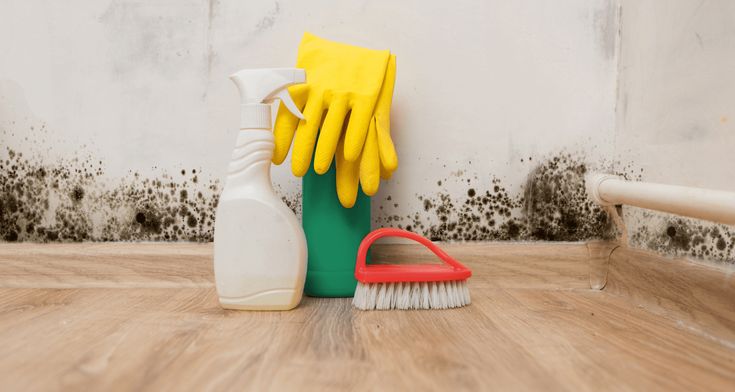
3. Chemical Solutions: Use with Caution
While natural remedies are effective for minor problems, severe infestation often require chemical interventions. However, these should be used responsibly to protect your family and the envroment.
- Insecticides: Use gel baits for cockroaches and sprays for flying insects like flies and mosquitoes For safety, choose products approved for residential use an follow the manufacture’s instruction carefully
- Rodent Baits: Place bait stations in areas where rodents are active, ensuring they are out of reach of children and pets.
- Termiticides: Apply liquid termiticides or termites baits to treat termite infestations. For long term protection , use wood preservatives on susceptible wooden structures.
4. Eco-Friendly Alternatives
Eco friendly pest control methods for homes options are gaining popularity fr their sustainability and safety. These methods minimize harm to the environment while effectively addressing pest issues.
- Neem Oil Spray: Neem oil is a natural pesticides effective against aphids, mites, beetles and more. Mix need oil with water and a few drops of siap then spray on affected areas.
- Soap Water: Create a simple pest control solution by mixing dish soap with water. Spray this mixture on plants to eliminate pests ;ike whiteflies and aphids.
- Sticky Traps: These non-toxic traps are ideal for capturing flying insects such as fruit flies and moths.
5. Advanced Pest Control Methods
For persistent on large scale infestations, consider the top advanced pest control services techniques
- Integrated Pest Management (IPM): This comprehensive approach involves identifying pest risks, monitoring pest activity, and using targeted treatments. IPM minimizes chemical use and focuses on long-term pest management.
- Heat Treatments: A chemical free and eastymethod for reduce the bedbugs and termites, this treatments involve rasing the temperature of an infested area tolevels that are lethals to pests.
- Ultrasonic Devices: These devices reduce high-frequency sound waves that repel pests like rodents and insects without effect andhraming humans or pets .
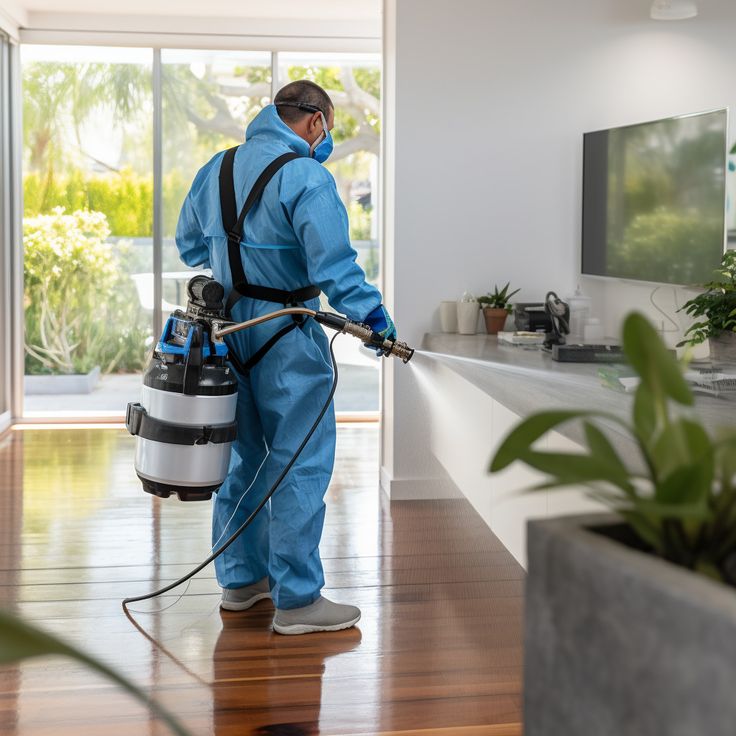
Professional Pest Control Services
When DIY methods faled to control serve infestation, professional pest control services of greenpestmangment are the best solution For you. Their experts have the knowledge and equipment to address infestation effectively.
- Thorough Inspection: Professionals will conduct a detailed inspection to determine the type and extent of the infestation.
- Customized Treatment Plans: Based on the findings, they will create a plan tailored to your home’s specific needs, using the most effective methods.
- Regular Follow-Ups: To ensure the pests do not return, many services offer follow-up inspections and treatments.
Maintenance Tips for Long-Term Pest Control
Once you’ve addressed the infestation, maintaining a pest-free home requires consistent efforts to reduce. Adopt these pest control methods for homes
Best pest control methods for homes to reduce the pest and achieve a for long-term results
- Regular Cleaning: Keep your home clean, especially the kitchen and bathroom, where pests often find food and water.
- Fix Leaks Promptly: Repair leaking faucets, pipes, and other water sources to eliminate breeding grounds for pests.
- Inspect Storage Areas: Check basements, attics, and storage units regularly for signs of pests.
- Store Food Properly: Use airtight containers to store food items and prevent access to pests.
- Seasonal Inspections: Pests are often more active during specific seasons. Conduct thorough inspections at the start of each season to address vulnerabilities.
FAQs
Q: Are natural remedies effective for severe infestations?
A: Natural remedies for pest control methods for homes work well for minor infestations, but severe infestations usually require professional pest control services or chemical treatments for complete eradication.
Q: How often should pest control be done?
A: Schedule professional pest control treatments every 6-12 months, depending on your location, climate, and the type of pests you face.
Q: Can I prevent pests without using chemicals?
A: Yes, preventive measures like sealing entry points, maintaining cleanliness, and using natural remedies are highly effective in keeping pests at bay.
Q: What is Integrated Pest Management (IPM)?
A: IPM is a holistic approach to pest control that combines prevention, monitoring, and targeted treatments to manage pests effectively while minimizing environmental impact.
Conclusion
Keeping an irritation free home is a continuous responsibility that consolidates counteraction, regular cures, substance arrangements, and expert administrations. A proactive pest control methods for homes, including fixing passage focuses, keeping your home clean, and tending to weaknesses, guarantees vermin are less inclined to attack. Regular techniques, for example, utilizing rejuvenating oils or establishing irritation repulsing plant life, offer eco-accommodating answers for minor issues, while proficient mediations can handle extreme invasions actually.
Keep in mind, steady carefulness is the foundation of long haul bother control. Routinely examining your home, fixing spills, and arranging mess can essentially decrease the gamble of bugs. Embrace economical practices and custom-made techniques of pest control methods for homes to make a protected, solid, and open to living climate for your loved ones.

